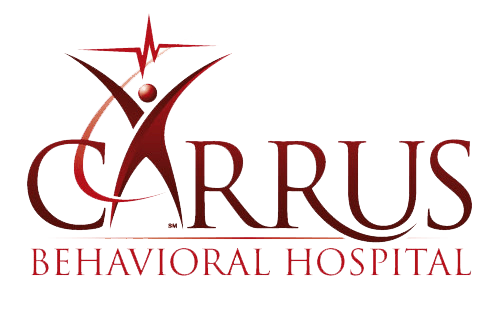
Family therapy is a powerful tool that helps families navigate through challenges and improve their relationships. If you’re considering family therapy, it’s important to understand the role of the family therapist and what to expect during sessions.
In this article, we will explore these topics further.
Creating a Safe and Supportive Environment
The first and foremost role of a family therapist is to create a safe and supportive environment for everyone involved.
They strive to foster open and honest communication, ensuring that each family member feels heard and valued.
This safe space allows families to explore their feelings, thoughts, and concerns without fear of judgment.
Identifying Patterns and Dynamics
During therapy sessions, the family therapist carefully observes the family dynamics and identifies patterns that may be contributing to the challenges at hand.
They pay attention to how family members interact with one another, the roles they assume, and the communication styles they employ.
By understanding these dynamics, therapists can uncover underlying issues and help families develop healthier ways of relating to one another.
Facilitating Effective Communication
Effective communication is the backbone of any healthy relationship. Family therapists play a crucial role in helping families improve their communication skills. They do this by:
- Teaching active listening techniques
- Encouraging respectful dialogue
- Guiding family members in expressing their needs and emotions effectively
By fostering better communication, therapists help families build stronger connections and resolve conflicts more constructively.
Providing Education and Skills Training
Family therapists are also educators, providing families with valuable knowledge and skills to overcome challenges. They may offer psychoeducation about common family issues, such as:
- Parenting strategies
- Conflict resolution techniques
- Coping mechanisms for stress management
These tools empower families to make positive changes and develop healthier dynamics outside of therapy.
Collaborating on Goals and Solutions
In family therapy, the therapist acts as a collaborator, working alongside the family to identify goals and develop solutions.
They encourage family members to actively participate in the therapeutic process, ensuring that everyone’s perspectives and needs are taken into account.
Through this collaborative approach, families can develop customized strategies to address their unique challenges.
Monitoring Progress and Adjusting Approaches
Therapy is a dynamic process, and family therapists continuously monitor the progress of their clients.
They assess whether the established goals are being met and make any necessary adjustments to the treatment plan.
By regularly evaluating the effectiveness of the therapy, therapists ensure that families are on track toward achieving their desired outcomes.
When Can You Benefit from Family Therapy?
Family therapy can be beneficial in a wide range of situations, helping families navigate through challenges and strengthen their bonds.
Here are some common scenarios where family therapy can make a significant difference:
1. Communication Issues
Communication breakdown is a common source of conflict within families.
If you find that misunderstandings, miscommunication, or constant arguments have become a pattern, family therapy can help:
- Facilitate healthier communication patterns
- Teach active listening skills
- Provide tools to improve the overall quality of communication within the family
2. Parent-Child Relationship Struggles
Parenting can be challenging, and sometimes the parent-child relationship may become strained.
Family therapy can provide a nurturing space to address issues such as discipline problems, behavioral challenges, or conflicts between parents and children.
3. Major Life Transitions or Loss
Significant life events like divorce, the death of a loved one, or relocation can have a profound impact on families.
Family therapy can offer support during these transitions, helping family members navigate their emotions, process grief, and adjust to new circumstances.
4. Blended Family Challenges
Blending two families together can bring about unique challenges. Conflicting parenting styles, loyalty conflicts, or difficulties in adjusting to new family structures can strain relationships.
Family therapy can provide a neutral space for all family members to express their concerns, explore different perspectives, and work toward creating a cohesive and harmonious blended family unit.
5. Substance Abuse or Addiction Issues
When a family member struggles with substance abuse or addiction, the entire family can be deeply impacted.
Therapists can assist family members in setting boundaries, developing coping strategies, and rebuilding trust within the family system.
6. Mental Health Concerns
When one or more family members are experiencing mental health issues, it can affect the entire family dynamic.
Family therapy can help families understand and support each other through these challenges, while also addressing any family dynamics that may be exacerbating the situation.
Family therapy is not solely for families in crisis. It can also be a proactive approach to strengthening family bonds, improving communication, and enhancing overall family functioning.
Regardless of the specific challenges you may be facing, family therapy offers a supportive and collaborative space to work toward positive change and growth.
Compassionate Family Therapy in Sherman, TX
Remember, family therapy is a journey, and every family’s experience is unique. The role of the family therapist is to guide and support families as they navigate this journey, offering valuable insights and tools along the way. By working together, families can build stronger connections, improve communication, and create a more harmonious and fulfilling family life.
If you need compassionate family therapy in Sherman, look no further than Carrus Behavioral Health Hospital. Our trustworthy and dedicated team of healthcare providers will make sure you have a safe space to receive the care you deserve. You may call our friendly staff today at (903) 870-1222 to book an appointment with us. You can also use the same hotline if you have any concerns or questions.
We look forward to serving you!

